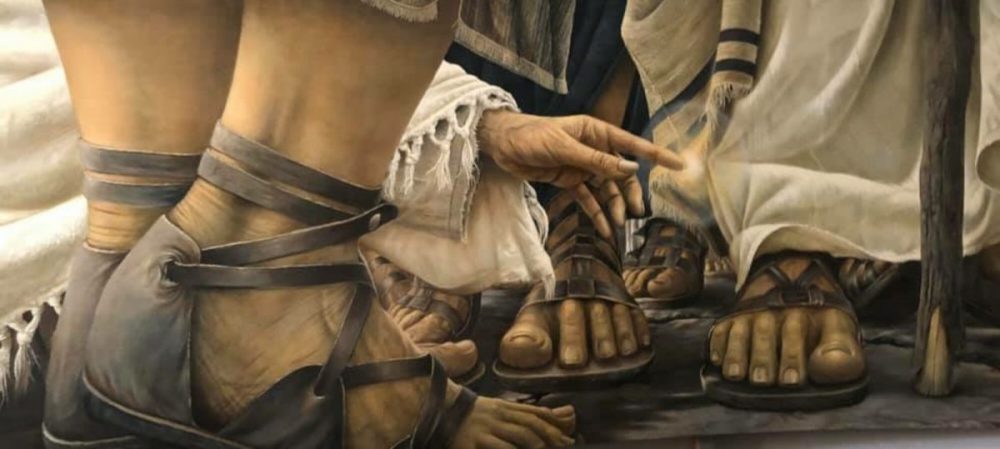1 Peter was written to Christians facing persecution in Rome and the Roman territories of Asia- modern-day Turkey. Peter warns the believers of all kinds of trials that they would be facing for their faith, gives words of encouragement, and instructs them on how to live during times of persecution. In 1 Peter 5:8, Peter encourages them to be watchful because Satan, as a roaring lion, is “seeking someone to devour”.
As I read this passage the other day, I began to wonder about a lion’s roar: when does he roar and why, so I did some research on the subject. I found out that it is the male lions who roar most and have the loudest roar. They usually roar at night when the air is cooler and sound travels farther. And they usually roar for four reasons: 1) to warn the pride of impending danger, 2) to locate members of the pride who may have strayed and gotten lost, 3) to scare away intruders, and 4) to display dominance. Lions do not roar when they attack their prey because they are sneaking up on them and, therefore, want to be as quiet as possible. So, other than warning of danger and locating lost members of the pride, the purpose of the lion’s roar is to frighten and display dominance.
If it is true that lions do not roar when attacking their prey, then I wondered why Peter said that Satan “prowls around like a roaring lion, seeking someone to devour” (ESV). To try and get a better picture, I further examined the words he used. The word for prowl is the Greek word peripateo which means “to walk, live, conduct your life, behave, or be occupied with. The word, then, is not just referring to strolling or going from one place to another but is used in reference to their behavior or conduct. We use it in the same sense today when we say someone should “walk the talk”: that their behavior should match their words.
Also, the word devour is the Greek word katapino which means “to drink, swallow, destroy, and consume. But it also means “to be overwhelmed”. It is used in 2 Cor. 2:7: “so you should rather turn to forgive and comfort him, or he may be overwhelmed by excessive sorrow” (ESV emphasis mine). With all this in mind, then, I believe a paraphrase of this verse could be: “Be aware of our enemy Satan for he is occupied with overwhelming us with fright through his roars.”
When Nancy and I were missionaries in Hungary, we lived in the city of Debrecen, the second largest city in Hungary. Debrecen is a beautiful city with a large zoo about a mile from our apartment. The zoo housed some lions and on some summer evenings, we could hear the roar of the lions. They say that a lion’s roar can be heard for up to five miles, so you can imagine how loud and clear the roar was for us. I knew that the lions were in a strong enclosure so we didn’t need to fear, but I could imagine how fearful it might be to hear that sound on the African savanna at night.
I also know that it is easy to be overcome with fear when Satan roars. However, I don’t believe Peter was warning the believers because Satan posed a threat. On the contrary, he immediately tells them that they can resist him (1 Peter 5:9). Instead, I believe that he was warning them of Satan’s tactics: that Satan is going to make a lot of noise to attempt to frighten them. But, because Satan was defeated through Jesus’ death and resurrection, all his roaring is just that—a lot of noise! He has no power or authority over God’s people, so he tries to intimidate and display dominance.
In my opinion, in these verses, Peter is giving the believers instructions on how to handle the adversity they are or will face. He tells them to humble themselves under God’s mighty hand (verse 6). In other words, they should place themselves in God’s care because He is bigger than any problem they face, and they don’t need to worry about the problem (verse 7). They should remember that Satan is defeated and all he can do now is make noise to frighten them. Therefore, they don’t have to give in to that fear but can stand against his attacks (verses 8-9). And they can rest assured in the fact that, in the end, God will restore all things in Christ (verse 10). The message Peter gave to the believers facing persecution in Asia is true for us today. No matter what attacks, persecutions, or problems we face we can stand firm in God’s power and care knowing that no matter how loudly Satan roars, we will not fear because we know that God is bigger, and we win in the end.
